Why Trump’s Second Victory Would Be Worse
There’s now a real, organized effort to transform his resentments and impulses into policy. It’s called Project 2025.
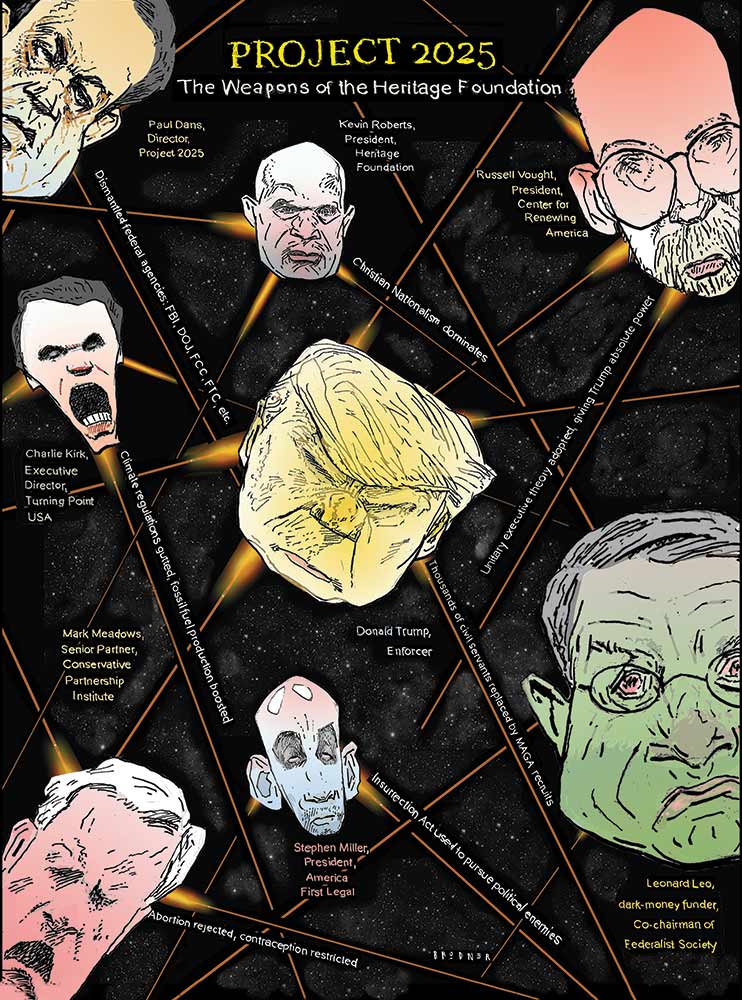
This article is part of “Project 2025: The Plot Against America,” a Nation special issue devoted to unpacking the right’s vast and chilling program for a second Trump term.
How far might Donald Trump go, if given a second chance? The estimates range from dictatorship to a rerun of his first term, when indolence, ignorance, and incompetence mitigated his menace.
But this time promises to be different—and far worse. Trump’s tempestuous stump performances, which meld vaudeville with venom, provide a clue. He has repeatedly promised to round up and deport millions of immigrants, pardon the January 6 offenders, prosecute his persecutors, impose tariffs on all imports—perhaps higher than 60 percent on goods from China—and “Drill, baby, drill!”
What’s different this time, as this special issue details, is that there is now an organized effort to transform Trump’s resentments and impulses into policy. Trump’s MAGA acolytes have not only dethroned the Republican establishment in Congress and red-state legislatures; they have taken over the party’s think tanks, including the Heritage Foundation, once the bastion of Reagan conservatism.
Project 2025
Now these MAGA operatives are, in the words of Heritage president Kevin D. Roberts, intent on “institutionalizing Trumpism.” The foundation’s Project 2025 includes a 900-page book, Mandate for Leadership, that lays out a Trumpist agenda for every corner of the government; a still-secret 180-day Transition Playbook for the first six months in office; a right-wing version of LinkedIn to recruit and vet candidates for political appointment; and a Presidential Academy to train them.
The essays in this issue describe core aspects of what is more assault than agenda, revealing how Project 2025 turns Trump’s insults and grievances into policy predicates. The result is a chilling guidebook to a second Trump term.
Kim Phillips-Fein outlines how Heritage’s new Mandate is far more extreme than the original 1980 plan that guided Reagan’s administration. An immediate priority, as Chris Lehmann details, will be to bring the permanent bureaucracy to heel. Schedule F—an executive order that Trump released in the last weeks of his presidency—will be revived, empowering the president to turn the civil service into a spoils system, creating 20,000 to 50,000 political appointees instead of the normal 4,000. In his second term, Trump will open not just the White House for business but the entire government. Central to this, as Elie Mystal explains, will be squelching any independence in the Department of Justice while continuing to pack the courts with reactionary partisans.
Once ensconced in office, MAGA operatives will push to turn Trump’s threats into action. In year one, as Gaby Del Valle reports, his poisonous xenophobia will lead to an unprecedented roundup of millions of the undocumented, employing the National Guard and building detention camps as way stations to deportation. Sasha Abramsky reveals how part of Trump’s planned assault on public housing will aim at dispossessing US citizens born to noncitizen parents.
Trump’s embrace of white male privilege and Christian nationalism will be expressed in a “whole of government” offensive against what Roberts calls the “Great Awokening,” the phantom nightmare of a “totalitarian cult” that purportedly has subverted American institutions. All traces of DEI (diversity, equity, and inclusion) programs will be eradicated. All mention of gender will be extirpated. Government support for abortion and birth control (beyond abstinence) will be eliminated, as Joan Walsh discusses.
Another target will be any action on climate change, reflected in the reports of Trump’s Mar-a-Lago meeting with oil executives, in which he offered to push their agenda from day one in exchange for $1 billion for his campaign (and, inescapably, his legal bills). As Bill McKibben notes, Mandate describes in considerable detail the plans to eliminate programs, disembowel bureaus, and end reporting on anything climate-related.
Abroad, China is the new bête noir. As Jake Werner explains, China is blamed for everything from stealing jobs to spreading pandemics and drug addiction, and as William Hartung details, the China threat also propels a massive buildup of an already bloated military
At home, Project 2025 suggests, Trump will follow the traditional Republican gospel: more tax cuts for corporations and the rich, and more deregulation emasculating the agencies that protect our water, air, food, workplaces, and pocketbooks. Trump’s government will throw a truly bacchanalian orgy for entrenched interests: Big Oil, Big Pharma, Big Ag, the military-industrial complex, Wall Street, and more.
As John Nichols describes, delivering this will require Trump and his minions to further undermine American elections and democracy. Trump refuses to accept the results of any election he loses; if elected, his administration will work to make elections come out the right way.
Defeating Trump is necessary—but not sufficient. One realization that emerges from this special issue is how much damage has already been inflicted on our flawed democracy. Unions have been smashed, the floodgates to dark money and political gerrymandering opened wide, the Voting Rights Act gelded. Trump will make the country more corrupt—but Washington is already a lobbyists’ paradise, its culture defined by revolving doors, expense-account excess, and quid pro quo bribery. Trump will make America even more unequal, but billionaires already pay taxes at lower rates than working people. Trump will extinguish any hope of dealing with climate change, but the US is already at peak oil.
Yet a second Trump term promises an assault that will make America much worse—and this time the threat is far more serious. As Trump has said, “When I first got to Washington, I knew very few people.” Now he knows many—and the people he knows are central to Project 2025 and its detailed plans for a second term.
Popular
“swipe left below to view more authors”Swipe →Of course, there will be resistance—in Congress, the bureaucracy, and the press. But we can be certain that if Trump is elected, America will become more corrupt, more xenophobic, more bellicose, less inclusive, less democratic, and less secure. Any hope of addressing the real threats to our security—from climate change to pandemics to inequality and corruption—will be lost.
Are enough Americans so disgruntled and disillusioned as to risk giving Trump the keys to the White House once more? That remains to be seen.
Support independent journalism that exposes oligarchs and profiteers
Donald Trump’s cruel and chaotic second term is just getting started. In his first month back in office, Trump and his lackey Elon Musk (or is it the other way around?) have proven that nothing is safe from sacrifice at the altar of unchecked power and riches.
Only robust independent journalism can cut through the noise and offer clear-eyed reporting and analysis based on principle and conscience. That’s what The Nation has done for 160 years and that’s what we’re doing now.
Our independent journalism doesn’t allow injustice to go unnoticed or unchallenged—nor will we abandon hope for a better world. Our writers, editors, and fact-checkers are working relentlessly to keep you informed and empowered when so much of the media fails to do so out of credulity, fear, or fealty.
The Nation has seen unprecedented times before. We draw strength and guidance from our history of principled progressive journalism in times of crisis, and we are committed to continuing this legacy today.
We’re aiming to raise $25,000 during our Spring Fundraising Campaign to ensure that we have the resources to expose the oligarchs and profiteers attempting to loot our republic. Stand for bold independent journalism and donate to support The Nation today.
Onward,
Katrina vanden Heuvel
Editorial Director and Publisher, The Nation
More from The Nation
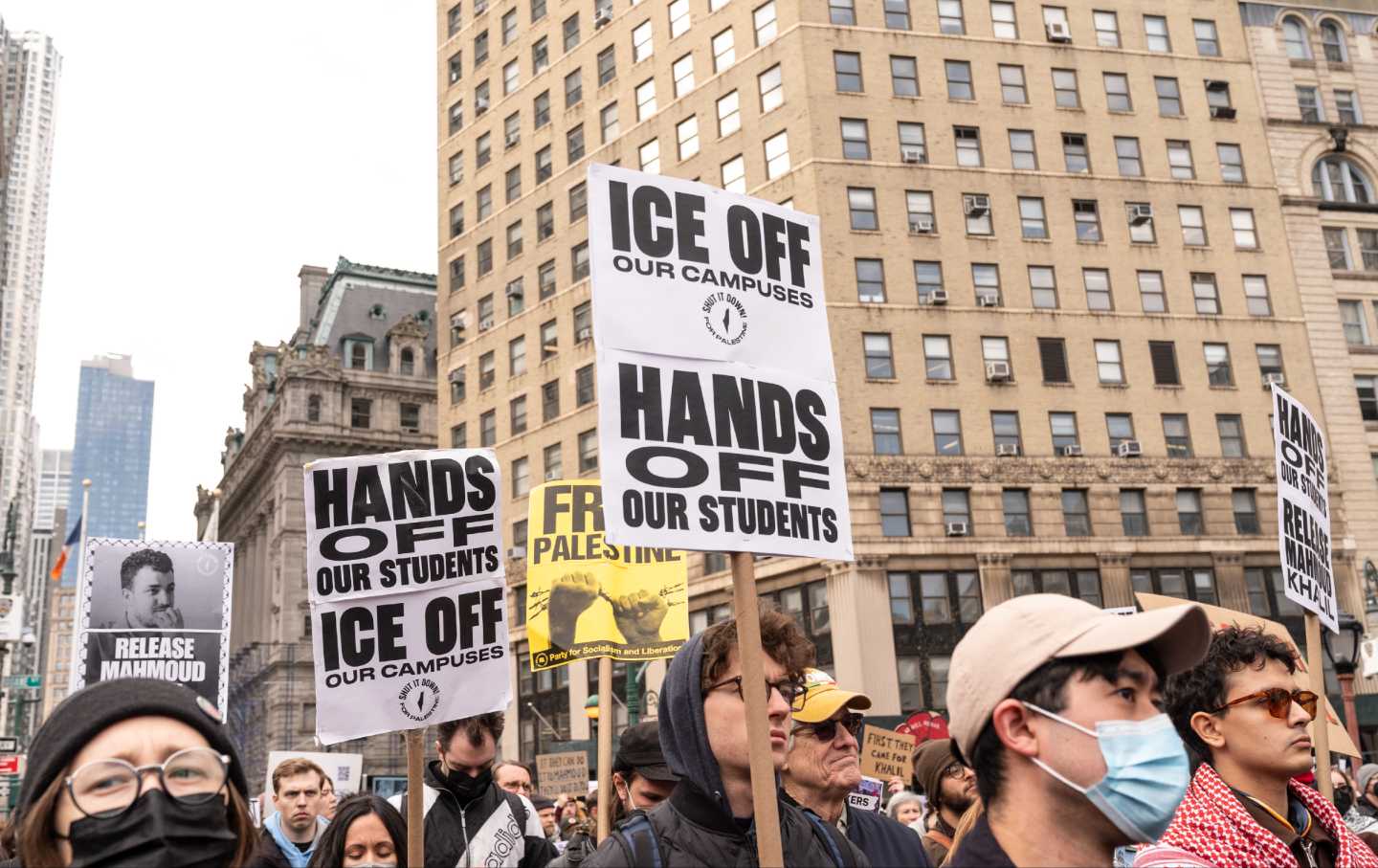
Columbia Is Betraying Its Students. We Must Change Course. Columbia Is Betraying Its Students. We Must Change Course.
The administration is choosing complicity over courage in the case of Mahmoud Khalil. It’s time for the faculty to demand a new path.

The Trans Cult Who Believes AI Will Either Save Us—or Kill Us All The Trans Cult Who Believes AI Will Either Save Us—or Kill Us All
What the Zizians, a trans vegan cult allegedly behind multiple murders, can teach us about radicalization and our tech-addled politics.
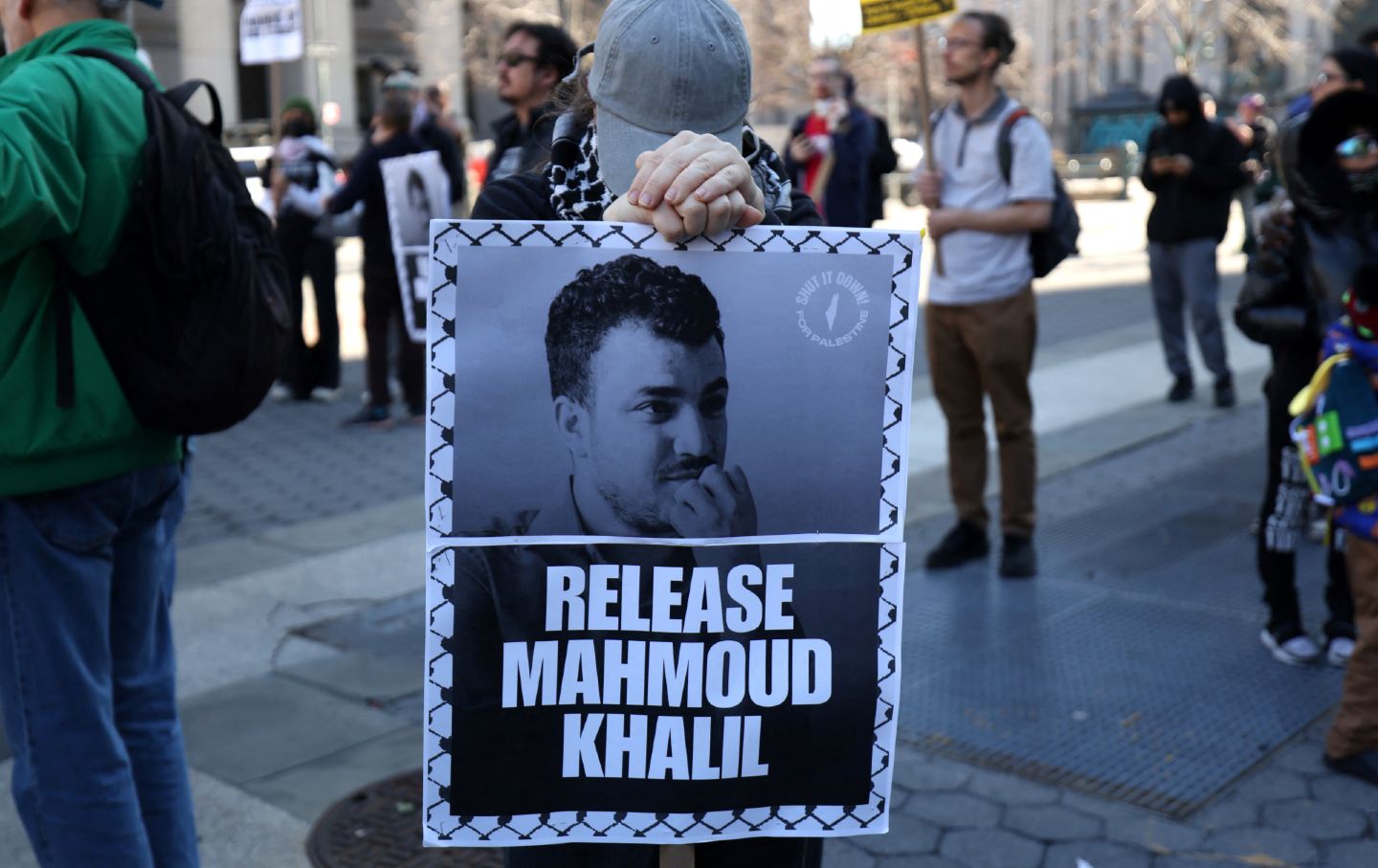
We Are Asking the Wrong Questions About Mahmoud Khalil’s Arrest We Are Asking the Wrong Questions About Mahmoud Khalil’s Arrest
The only relevant question is not “How can the government do this?” It is “How can we who oppose this fascist regime stop it?”
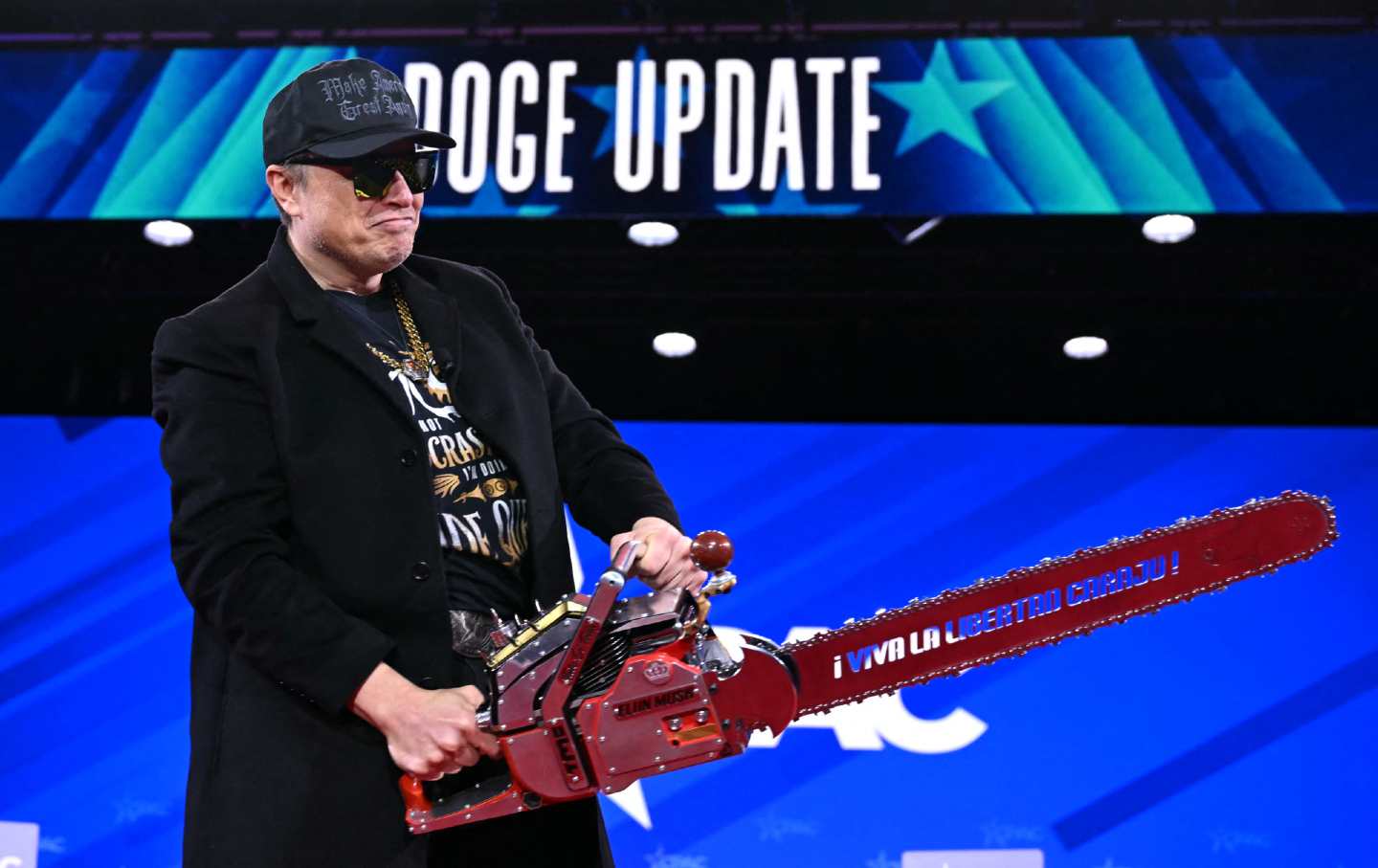
DOGE’s Private-Equity Playbook DOGE’s Private-Equity Playbook
Elon Musk's rampage through the government is a classic PE takeover, replete with bogus numbers and sociopathic executives.
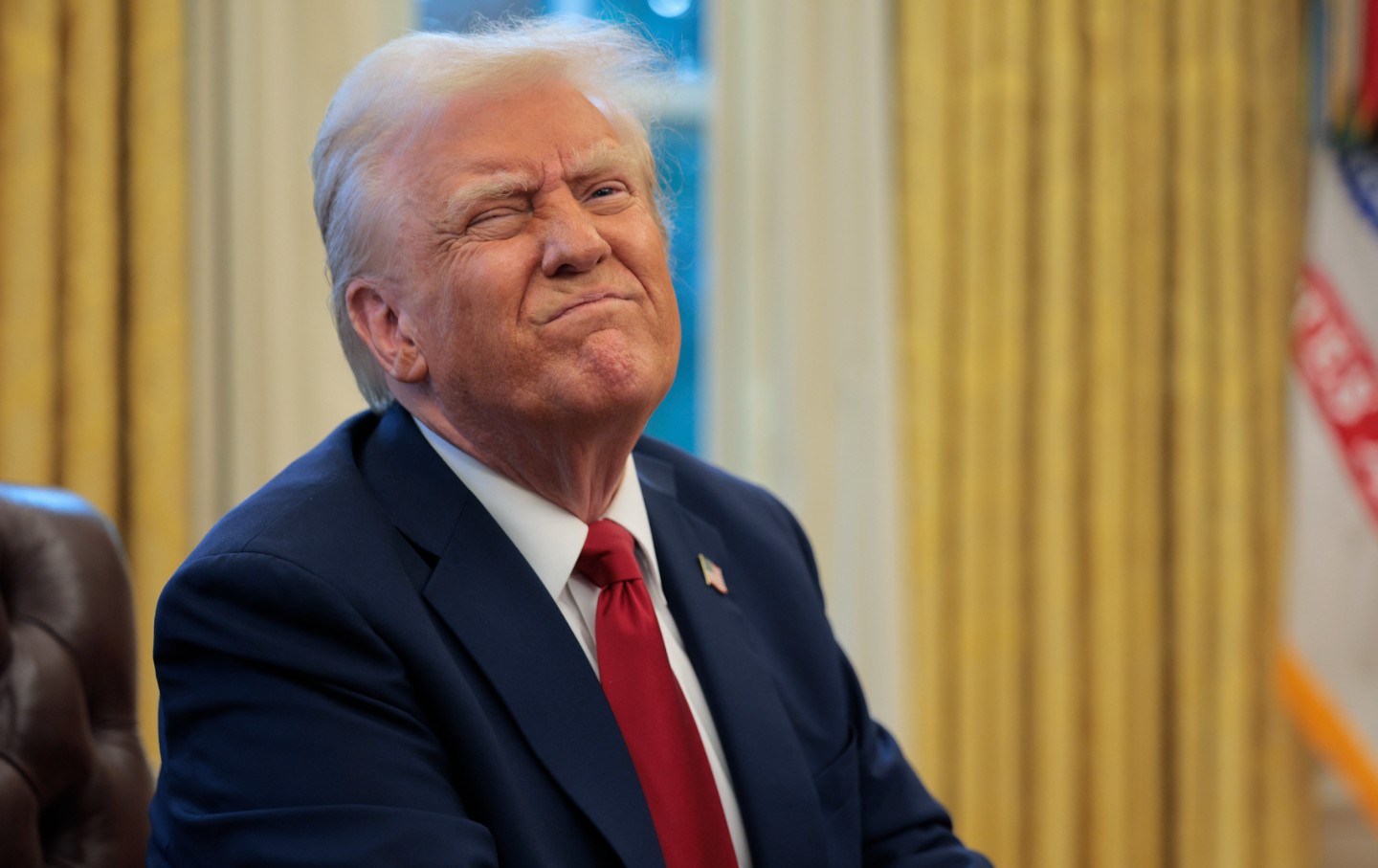
White Flops Rejoice! White Flops Rejoice!
DEI is being snuffed out in DC. Mediocre whiteness reigns. And we’re all going to suffer for it.
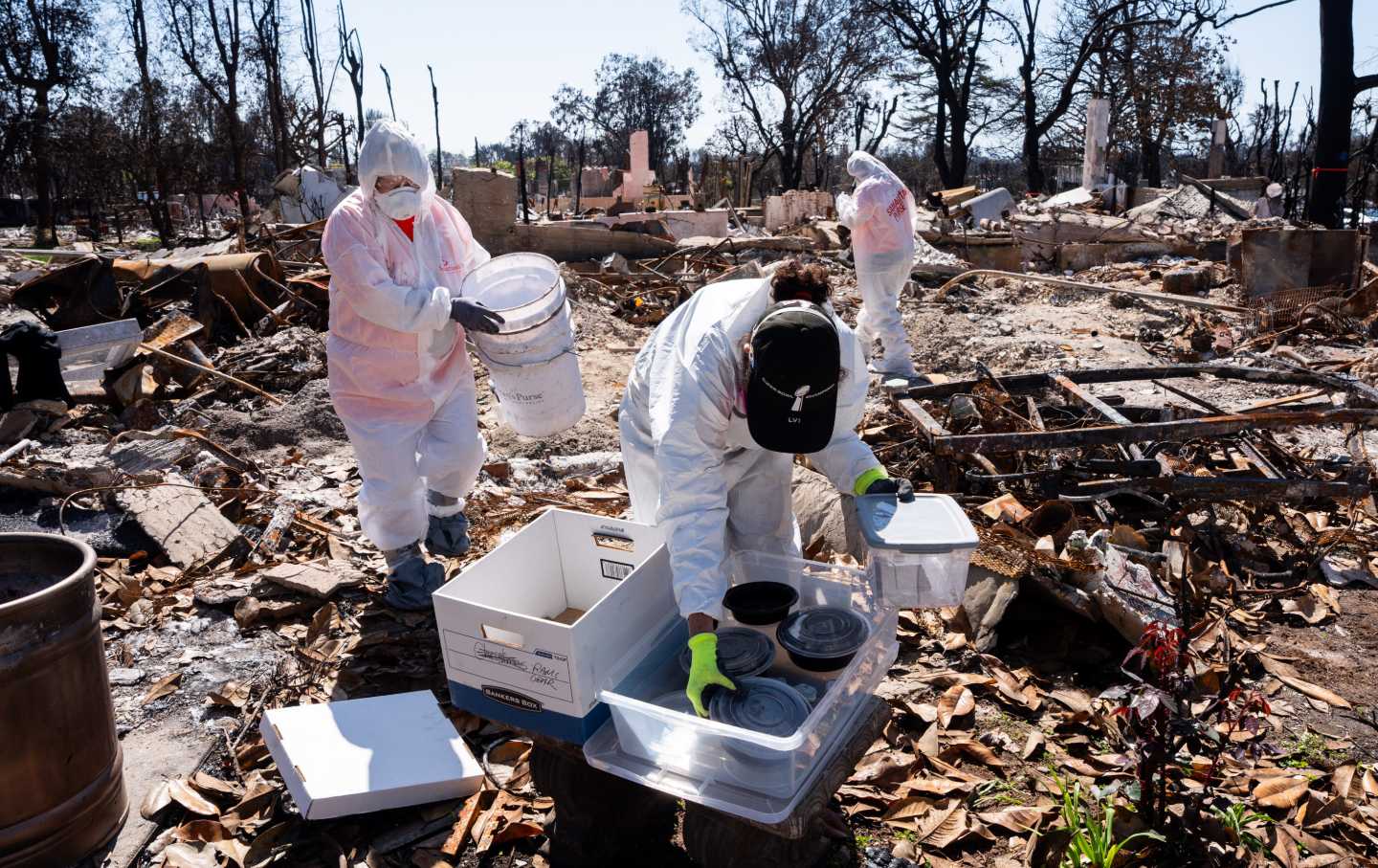
Parts of LA Are Not Going to Be Habitable Parts of LA Are Not Going to Be Habitable
Insurers have figured out that risk is too high in parts of California. We need to re-conceive how people are housed, and fast.


